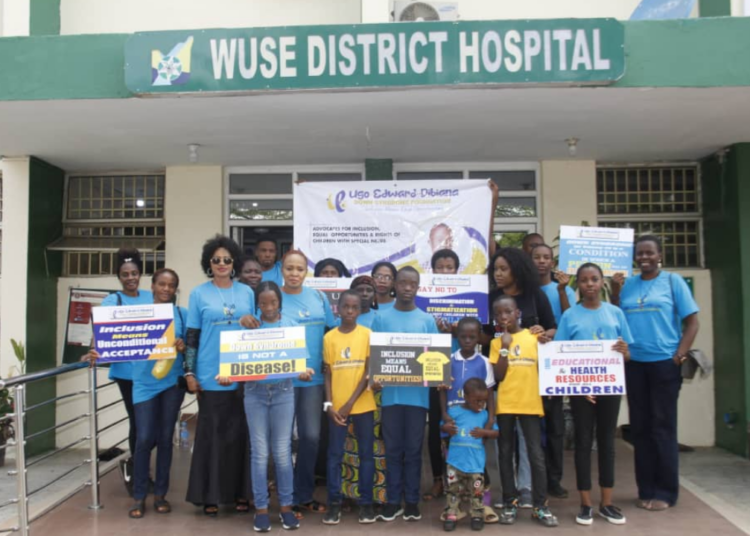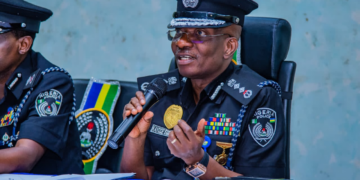As the world marks the 2023 World Down Syndrome Day, the Down Syndrome Foundation has decried what it described as the disturbing lack of access to adequate education and healthcare resources, lingering discrimination and stigmatisation against children living with down syndrome and other disabilities.
Down syndrome is a condition in which a person has an extra chromosome. People living with the syndrome are often impacted by diverse health challenges including internal organ defects and intellectual disability.
The foundation has, therefore, called upon President Muhammadu Buhari and the leadership of the National Assembly to take steps at ensuring compliance to the disability rights law, signed by President Buhari in January 2019.
This call was contained in a letter to President Buhari and the leadership of the National Assembly, by the co-founder of the foundation, Mr. Edward Dibiana, in commemoration of the World Down Syndrome Day.
World Down Syndrome Day is annually celebrated on the 21st of March globally to highlight the peculiar challenges faced by people living with Down Syndrome and how government and the society could help to assuage their plight.
Dibiana, who is also a parent of a child living with down syndrome, in a statement issued in Abuja on Monday, said that “despite this law which was supposed to protect the interest of people living with disability, parents of children with special needs still experience difficult and distressing challenges in getting schools to accept their children or wards, as many schools in Nigeria still reject these children on account of their conditions. That’s a sad example of obvious discrimination that the law prohibits.”
He said, “In some cases, children living with special needs are made to pay extra fees, much higher than those paid by their peers in the same class, just for them to have access to education, in violation of the discrimination law.”
The foundation also disclosed that cultural and social prejudices and stigmatisation of children with special needs have not abetted despite the good intentions of the law. The perception that children with special needs are carriers of bad luck or possessed by demons is still prevalent in Nigerian society, it further said.
Dibiana said, “The beauty and credibility of every democracy are often judged by how it protects the weak and the disadvantaged demography against tendencies that threaten to hinder their well-being, dignity and survival in the society.
“For instance, sometimes children with special needs in Nigeria are tragically ‘allowed’ to die, sadly, due to circumstances that are interwoven in lack of access to healthcare, cultural/religious prejudices, ignorance and incapacitating economic conditions of many indigent parents.”
He, therefore, called on the Nigerian government to take steps to protect this vulnerable demographic by ensuring strict compliance to the Discrimination Against Persons with Disabilities (Prohibition) Act, 2018, and any other laws that were made to protect their rights and interests.
We’ve got the edge. Get real-time reports, breaking scoops, and exclusive angles delivered straight to your phone. Don’t settle for stale news. Join LEADERSHIP NEWS on WhatsApp for 24/7 updates →
Join Our WhatsApp Channel










